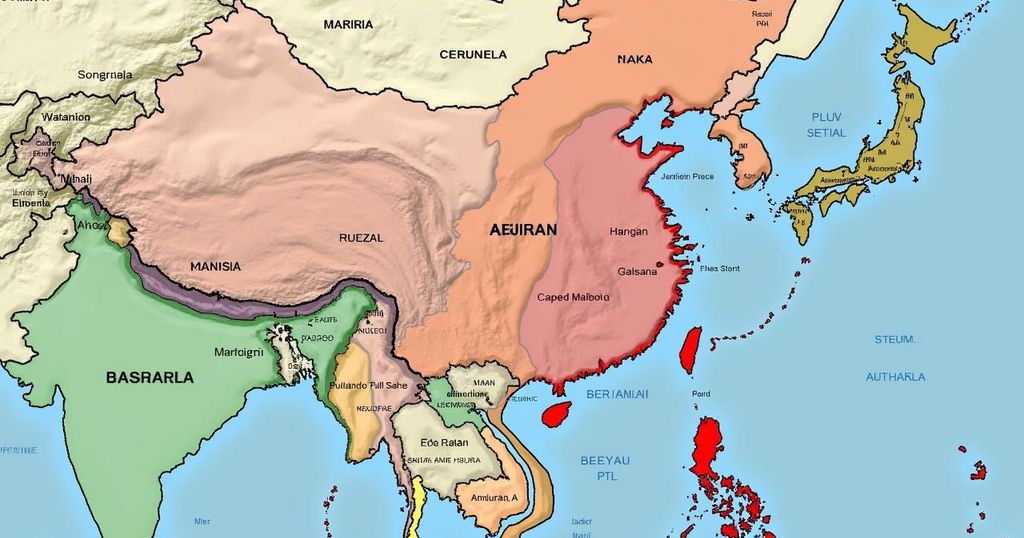Mapping Asian States’ Position on the Crimes Against Humanity Convention: Insights from AALCO Records

The article discusses the evolving support for the International Law Commission’s Draft Articles on Crimes Against Humanity among Asian States, highlighting the role of the AALCO in fostering a unified stance. Key developments, including Malaysia and Thailand’s advocacy for the articles, are underscored amidst ongoing challenges with existing international frameworks like the Rome Statute. The potential for a strengthened position from AALCO is emphasized as the Sixth Committee prepares for future diplomatic discussions.
In recent years, there has been an increasing recognition of the International Law Commission’s (ILC) Draft Articles on Crimes Against Humanity within international forums, notably at the United Nations General Assembly’s Sixth Committee. Although initially stalled due to a lack of consensus following their adoption by the ILC in 2019, a breakthrough occurred with the passage of Resolution 77/249, which initiates resumed sessions focused on this topic. As the discourse surrounding these Draft Articles continues, understanding the perspectives of Asian States is essential for gauging their support and potential contributions towards an effective international legal framework addressing crimes against humanity. The Asian-African Legal Consultative Organization (AALCO) serves as a significant platform for this discourse, established in 1956 to reflect the legal perspectives of member States across Asia and Africa. AALCO’s annual sessions provide an avenue for Member States to discuss and form cohesive legal positions on relevant international law issues, including the Draft Articles on Crimes Against Humanity. Although the AALCO has not addressed this topic in prioritization since 2019, several Asian States have started signaling their positions more clearly. Malaysia and Thailand have shifted towards support for the Draft Articles, advocating for their elaboration through international platforms, while Vietnam has adopted a more cautious stance. The need for broad engagement on crimes against humanity is further emphasized by the challenges posed by existing international law frameworks, particularly the Rome Statute of the International Criminal Court (ICC). In the backdrop of historical state practices, such as those undertaken by Indonesia and discussions surrounding the draft articles, AALCO has the potential to play a critical role in fostering a consolidated Asian-African approach. A framework emphasizing state obligations to prevent and prosecute crimes against humanity could greatly enhance national legal systems in addressing these grave offenses. Ultimately, as the Sixth Committee prepares for a diplomatic conference to discuss these Draft Articles in depth, the active engagement and collaboration of AALCO member states will be paramount in shaping a robust global commitment towards accountability.
The Draft Articles on Crimes Against Humanity, authored by the ILC, have emerged as essential components of international law aimed at enhancing global accountability for heinous crimes. Following their adoption in 2019, the drafts became a focal point in discussions at the United Nations, particularly in the increasingly crucial debates held within the Sixth Committee. AALCO, which has historically positioned itself as a voice for Asian-African legal perspectives, is tasked to encourage open dialogue about these Draft Articles, considering the unique legal frameworks of its constituent states. The ambiguity surrounding the utility and necessity of these treaties highlights the increasing importance of precise communication among member states, as they navigate both their obligations under existing international agreements and their national legal mandates.
The growing consensus among Asian States regarding the Draft Articles on Crimes Against Humanity needs to be embraced and developed further within the context of AALCO. With renewed interest from various member states, including Malaysia and Thailand advocating for constructive dialogue, there exists a viable opportunity for AALCO to rally a cohesive Asian-African position that can significantly influence the broader international legal discourse. As countries prepare for a future diplomatic conference to discuss these articles, it is imperative for member states to articulate and advocate for their visions of accountability and justice on the international stage.
Original Source: opiniojuris.org








